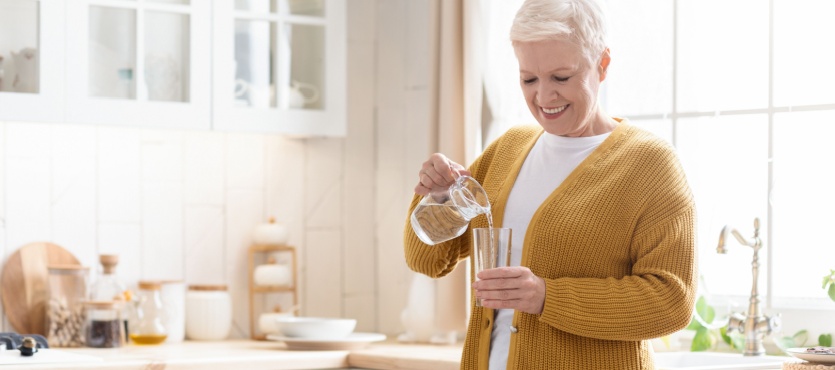Hydration plays a vital role in maintaining overall health, especially in seniors, whose bodies are more vulnerable to the effects of dehydration. As people age, their sense of thirst diminishes, making it easier to overlook the need for fluids. This can lead to serious health complications, including urinary tract infections, kidney problems, and even cognitive impairments. Understanding the importance of hydration and learning effective ways to encourage adequate fluid intake are essential steps in promoting the well-being of older adults.
Why Hydration Is Critical for Seniors
Water is a cornerstone of life, supporting essential bodily functions like digestion, circulation, and temperature regulation. For seniors, staying hydrated is especially important because their bodies undergo physiological changes that make them more susceptible to dehydration. A reduction in muscle mass, which stores water, and a decrease in kidney function, which impacts the body’s ability to conserve fluids, are two key factors. Additionally, certain medications commonly prescribed to older adults may have diuretic effects, further increasing fluid loss.
Dehydration in seniors can result in symptoms such as fatigue, confusion, dry skin, and dizziness, which may increase the risk of falls or other accidents. Chronic dehydration can exacerbate existing health conditions, including heart disease and diabetes. This is why caregivers and family members should prioritize hydration as an integral part of elderly care to prevent such risks.
How to Encourage Fluid Intake
Promoting hydration in seniors doesn’t have to be complicated. Simple strategies can make a significant difference in maintaining proper fluid levels.
One effective approach is offering a variety of beverages throughout the day. While water is the most direct source of hydration, herbal teas, milk, and fresh fruit juices can add flavor and variety. Seniors who find plain water unappealing might be more inclined to drink if infused with natural flavors from fruits like lemon, cucumber, or berries. These small enhancements can make hydration more enjoyable.
Incorporating water-rich foods into meals and snacks is another way to boost hydration. Fruits such as watermelon, oranges, and strawberries, as well as vegetables like cucumbers and celery, are excellent choices. Soups, broths, and smoothies can also provide both nutrition and hydration, making them ideal for seniors with reduced appetites. Offering such options ensures seniors stay hydrated even when they might not feel thirsty.
Establishing a routine can help seniors stay on track with their fluid intake. Setting reminders to drink water at specific times, such as with meals or medications, creates consistency and reduces the likelihood of forgetting. Keeping a water bottle nearby during daily activities also makes hydration more accessible and convenient.
It’s important to note that seniors with certain medical conditions, such as heart failure or kidney disease, may need to follow specific hydration guidelines. Consulting a healthcare provider ensures that fluid intake is tailored to individual health needs. Encouraging open conversations about hydration needs with healthcare professionals and caregivers can help create a supportive environment for seniors.
Recognizing the Signs of Dehydration
Understanding the signs of dehydration is critical for caregivers and loved ones. Early symptoms may include dry mouth, dark urine, or fatigue. More severe dehydration can cause confusion, rapid heart rate, or fainting. By being vigilant, caregivers can address dehydration promptly and prevent further health complications. Additionally, regular check-ins with healthcare providers can help detect and manage hydration issues before they become severe.
Trust USA Home Health: Supporting Holistic Senior Care
At Trust USA Home Health, we recognize that hydration is a critical component of senior health. Our caregivers are trained to encourage healthy habits, including proper hydration, and to monitor for signs of dehydration in the seniors they care for. Through personalized care plans, we help seniors achieve a balanced lifestyle that promotes overall well-being. Whether it’s encouraging fluid intake or addressing other essential health needs, our team is here to help. To learn more about our services or to discuss how we can support you or your loved ones, visit our contact page. Together, we can ensure that seniors receive the care and attention they deserve.

